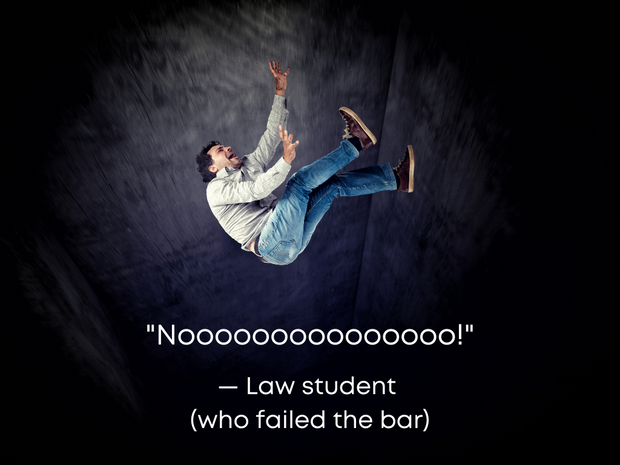Realizing you forgot to put on deodorant … and you’re on a date;
Trying a new restaurant … and getting a wrathful case of Delhi Belly from the food;
Getting stuck behind a Sunday driver … and you’re late for something important;
Accidentally locking yourself out of your apartment ... and it’s 3 in the morning.
All of these things suck harder than a bus-sized squid on the timbers of a 17th-century galleon. But what sucks more than any of these things—worse even than having your heart broken or dropping your phone in the toilet—is failing the bar exam.
It’s a blow to the stomach, the heart, and the mind that sends law grads plummeting to lows they never imagined possible. In fact, a fear of getting your bar exam results back and finding out that you’ve failed is the number one reason law grads find the MBE such a nerve-wracking challenge.
The good news is: there are ways you can minimize your chances of failing the bar exam. Studying hard and smart according to a well-thought-out and robust bar prep plan is one of them. Another is optimizing your learning through productive study techniques, as we explain in our Law Academy guide: ‘How to study for the bar more efficiently’.
A third is learning from the mistakes made by the law grads who came before you (rather than making them yourself). Or perhaps learning from the mistakes you made the first time around if this is your second or even third time taking the bar.
And so, our goal with this guide, which we’ve compiled with the advice of our experienced panel of legal experts, is to highlight the key reasons that law grads fail the bar exam:
- Using a cookie-cutter approach to studying for the bar
- Aiming for prep (and written answer) perfection
- Spending your study time inefficiently
- Not getting enough bar question practice
- Using questionable MBE question resources
- Not learning how to answer long written questions
Knowing these reasons for failing the bar exam is the first important step towards avoiding them. And this is key to crafting a hyper-efficient and targeted bar prep plan that will maximize your chances of getting good bar exam results.
But before we expose these insidious potholes on the road to becoming a licensed lawyer, let’s take a look at the bar exam pass rate (because failing is a very real thing that happens to a LOT of law grads every single year) ...
What is the bar exam pass rate?

The bar exam pass rate varies from state to state and from year to year. However, typically, it hovers between 60% and 80%, although it can be (and often is) significantly lower in certain states. For example, for the 2021 February test date, the bar exam pass rate in Alabama was 39.4%. In California, it was 39.6%.
(Check out The Bar Examiner’s stat page for the bar exam pass rate for your state, right up to the most recent results.)
What this means is that 20 to 40% of all the people in the exam room with you (if not more) will fail the bar. That’s a significant portion of people! But what’s really scary about these numbers is that most of these law grads studied their butts off.
I guess that’s why you’re here, isn’t it? You’re scared the same will happen to you. If these thousands of law grads studied hard, then where did they go wrong? Why are so many people failing the bar exam?
Let’s answer that right now …
Top reasons for failing the bar exam
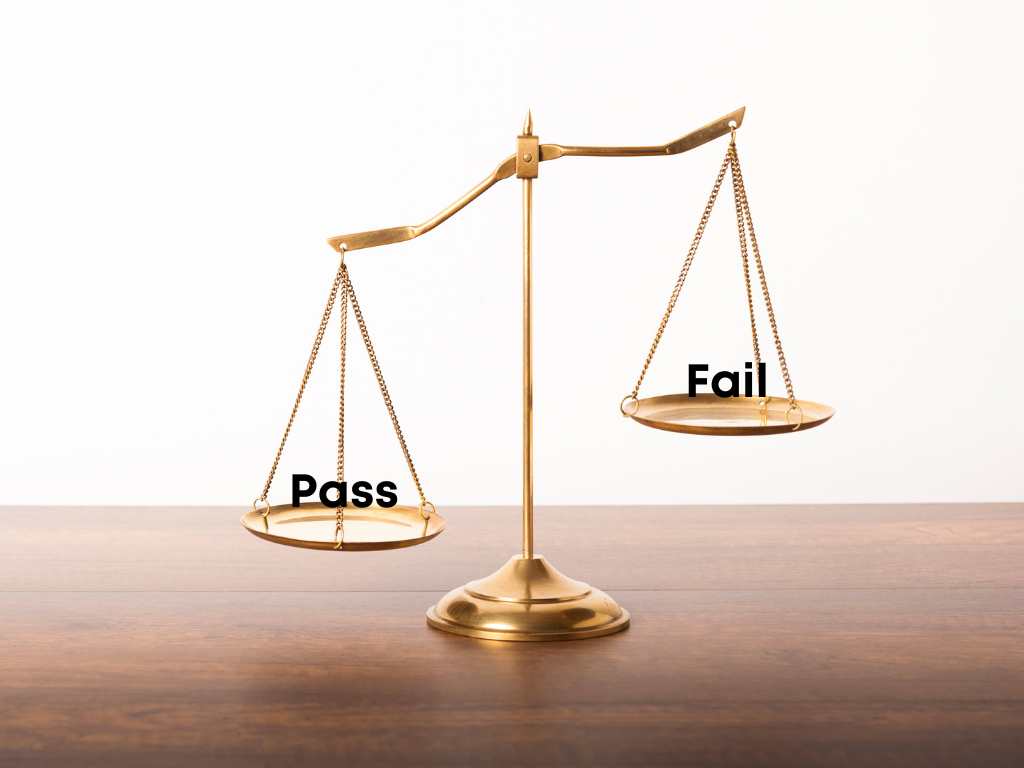
The answer is simple: they ran out of time.
They used a cookie-cutter approach to studying; they didn’t prioritize the content correctly; they used inefficient study techniques; and they aimed for perfection, rather than proficiency. And as a result, these poor grad students ran out of time and walked into their bar exam insufficiently prepared.
They may also have not factored in enough question practice, or used questionable MBE test resources, or didn’t spend time working on their longer written questions. There are many pitfalls when it comes to passing the bar and, right now, we’re going to thrust each under a microscope so that YOU can avoid them!
Using a cookie-cutter approach to studying for the bar
Go ahead and search: “how to study for the bar exam” and you’ll find the internet is a rich source of advice written by law academics, grad students, and even licensed lawyers. The problem is the internet is also a rich source of misguided advice: or advice that isn’t relevant to you.
Failing the bar exam often comes down to law grads trying to follow study advice that doesn’t really work for them.
You see, not everyone learns efficiently the same way. Some students are better with visual media, while others prefer making their own notes, etc.
Your learning goal is to maximize (1) knowledge retention and (2) actual enjoyment of your studies. If you haven’t figured out a study methodology that works to achieve these, then it’s important that you kick off your bar prep with some serious introspection and experimentation.
Just because some law vlogger insists that studying with mind maps is the best way to conquer torts doesn’t mean it’ll work for your brain. You may learn way more efficiently by distilling your lecture notes and textbooks down into concise study notes and then teaching it back to your Siamese cat.
Ideally, you should’ve figured out how YOU study most efficiently in law school but if you haven’t, now’s the time to do that. For guidance on some excellent learning approaches, check out Brainscape’s Law Academy guide ‘How to study for the bar exam more efficiently.
Pro Tip: Whatever your favorite study technique, there is one app that works consistently well with ALL brains to drill you on the ocean of law content you need to get great bar exam results. Brainscape’s certified MBE flashcards are the perfect study tool for memorizing law content, helping you learn twice as fast as traditional study methods!

And, being an app on your phone, you can whip it out anytime, anywhere to get quality, effective studying done, even if it is just a quick 5-minute round of flashcards while you wait for the bus or turn into a prune in the bath.
Aiming for prep (and written answer) perfection

The amount of law content you have to learn to take on the bar is huge. HUGE. Overwhelming, really. Staring at it all laid out before you is like having to eat a big, fat Thanksgiving turkey all on your own. Not even that, actually: a big, fat Thanksgiving brontosaurus … if they still lived, of course. #toosoon
The task feels impossible. How can I get all of that into my stomach, I mean, brain?
The answer is: YOU DON’T HAVE TO.
And this is a major reason for failing the bar exam. Law grads strive for prep perfection with the goal of memorizing everything they’re given to read in law school: every case brief, lecture note, and textbook page. It’s impossible and you’ll soon realize that when you’re three weeks out from the bar and you’ve only gotten through 10% of the content.
Remember: your ultimate goal is to PASS the bar. To do that, you need 65%. Of course, you’ll want to aim for better bar exam results than that, but there is a line that gets crossed when you shoot for perfection.
The best approach to studying, in terms of learning and memorizing law content, is to:
- Prioritize the highest-yield exam topics;
- Be basically proficient in the medium-yield topics; and
- Dedicate the least amount of time to the lowest-yield topics.
It’s not to be fluent in 100% of the test material.
Pro Tip: Many of the longer essay-type question resources out there provide model answers written by law professors under no time constraints. And while they illustrate how to best use your content knowledge to answer the questions, they just aren’t realistic under REAL examination conditions.
As a consequence, they can make you feel like your answers are inadequate. The point is, you don’t need to provide perfect, exhaustive answers to get great bar exam results. If anything, this approach will simply cause you to run out of time during the exam, which will flush precious marks down the wazoo. So don’t aim for perfection.
Be ruthless in your prioritization and efficiency!
(We’ll talk more about longer written questions in a bit.)
Spending your study time inefficiently

Speaking of efficiency! One of the biggest reasons for failing the bar exam is spending your study time inefficiently. We’ve already touched on this in our first tip (using study techniques that work for others but not necessarily you) and second tip (aiming for prep perfection rather than prioritization, as well as trying to construct perfect answers to bar exam essay questions, which cause you to run out of time).
And while we really dig into how to study efficiently for the bar exam in our Law Academy guide, here are some of the common mistakes law grads make:
- They didn’t prioritize the content so that they spend more time on highly-tested topics and much less time on low-yield topics. This is SO important because if you’re not careful you can end up investing days studying topics that have little to no history of showing up on the exam.
- They spent too much time on passive study techniques, like watching lectures, reading study notes, and turning the information from one form into another BUT not enough time MEMORIZING the information.
- They didn’t portion the workload out well enough and so, as they near the bar exam, they become increasingly panicked at how much ground they still have to cover.
- They didn’t track their progress and adjust their studies accordingly so that they could get through everything in time.
For the solution to ALL of these problems and how to, quite literally, DOUBLE your learning speed for the MBE, read Brainscape’s comprehensive guide: ‘How to study for the bar more efficiently.’
Also, check out 'When should I start studying for the bar exam?' so that you give yourself enough time to prepare!
Not getting enough bar question practice
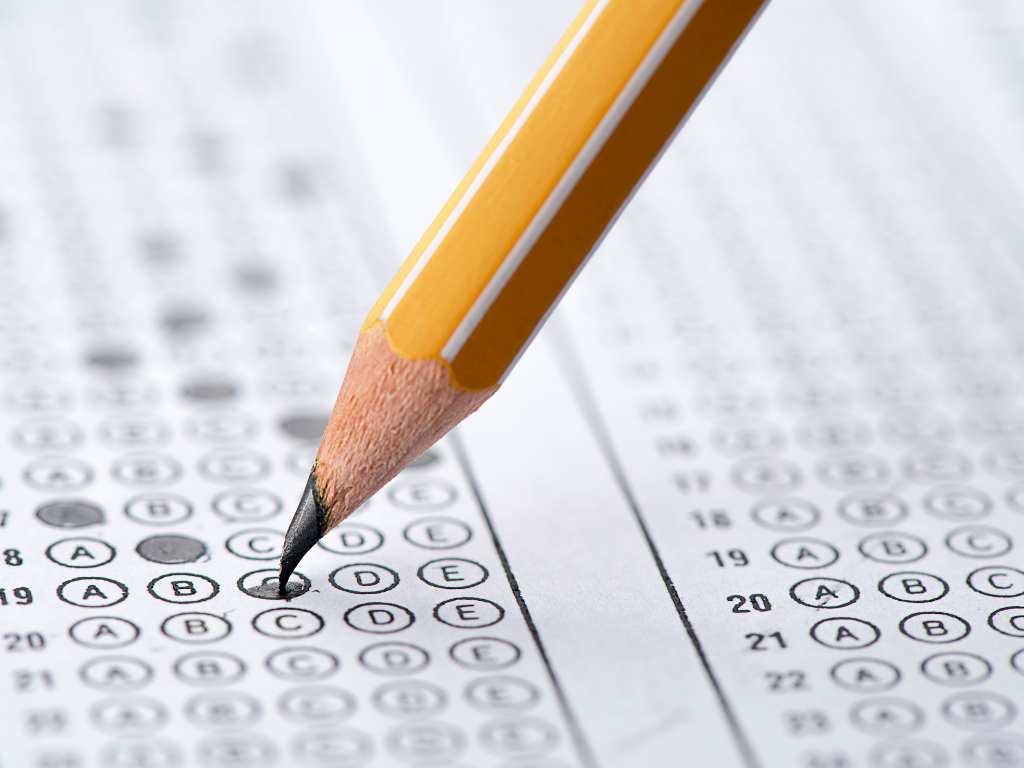
Practicing for the bar exam is almost as important as memorizing all that law content. Simply studying and then walking into the bar without practicing sample questions and full-length tests is like participating in a high diving competition without ever having done a jump before. It doesn’t matter how fit or agile you are. If you don’t apply your body to the task of executing those jumps, you’ll belly flop so hard, it’ll look like you fell asleep in the sun.
The same applies to the bar. You’ve got this incredible knowledge base but you need to learn to apply it intelligently, discriminately and succinctly to real bar exam questions.
As such, your study plan should include DAILY practice - and a lot of it. You should also take a handful of full-length bar exams in the months before the real deal to experience it in its full, punishing glory. It may be hard to discipline yourself to finish the whole exam when you start feeling fidgety after hour # 5 but consider this essential conditioning for the real thing.
ALSO—and I can’t stress enough how important this is—you need to practice bar exam questions RIGHT from the start of your bar prep.
Early on, the goal won’t be to test your knowledge (since you’re probably only just starting to memorize all that content). Rather, it’s to get a good feel for how the bar exam tests your knowledge. If you understand how the bar exam works right from the beginning, it’ll help you (1) study so much more efficiently and (2) visualize how the content you’re studying might show up in the bar exam.
Read: ‘How to take a practice bar exam’
Using questionable MBE question resources

A lot of law grads invest a good amount of practice time but, in an effort to avoid the expense of officially licensed MBE practice resources, they source cheaper or even free question and test banks. The problem is, these don’t necessarily accurately reflect the voice of the real bar exam.
These unvetted, unstandardized, and unapproved resources could even go so far as being misleading, poorly-phrased, inaccurate, and confusing. So, using random, made-up MBE questions you found on someone’s website can be dangerously counter-productive. Oftentimes, they’re a waste of time and don’t give students the kind of practice they need to score decent bar exam results.
The take-home message here is to use practice resources that have been written or approved by the National Conference of Bar Examiners (NCBE) who are the official MBE test-makers.
Pro Tip: A good bar review course will provide you with quality MBE practice resources! Read ‘How to pick a good bar review course’ for even more criteria to consider.
Not learning how to answer long written questions
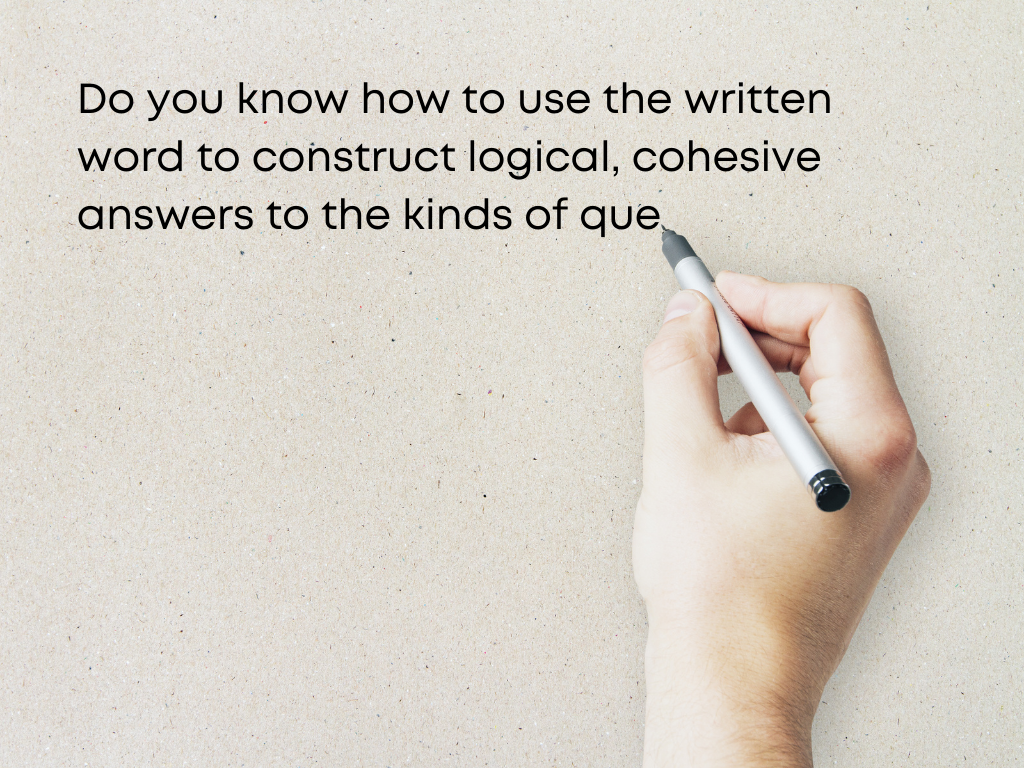
It’s one of the tragedies of most educational systems: students are not taught how to write properly, and certainly not how to use the written word as a conduit for delivering information, argument, and reason. Unless we take an actual writing course, that is.
So an important part of your bar prep needs to be learning how to format your answers logically, concisely and using plenty of paragraphs and clear, correct grammar. Remember, your paper is being graded by human beings and if you deliver one long, dense block of text they are probably not going to feel very enthusiastic about grading your paper.
Grumpy graders are made even grumpier by responses that are difficult to follow. They are not going to work hard to extract the information/argument you’re trying to convey. So be clear in your writing, use plenty of formatting to give the eye breaks, and follow the “IRAC” method—Issue, Rule, Analysis, Conclusion—to construct your responses:
Header = lays out the “Issue”
1st Paragraph = discusses the “Rule”
2nd Paragraph = provides your “Analysis”
3rd Paragraph = Draws up your “Conclusion”
Pro Tip: Practice answering longer written answers as early on as possible and then share your work with someone who knows how the MBE works and is in a position to offer valuable feedback, like a professor, tutor, or mentor. Very importantly, time your question practice so that you become proficient in crafting quick, succinct, yet thorough responses.
How many times can you fail the bar exam?

Now that we’ve analyzed the six most common reasons for failing the bar exam (many of which are done in tandem with another) let’s focus on the positive.
The worst-case scenario is that you fail the exam. But you can always retake it. Again and again. In fact, most states allow law grads unlimited attempts at the MBE. 15 States, however, apply discretionary limits to these attempts (i.e. require certain circumstances to permit another examination):
- Arizona (3)
- District of Columbia (4)
- Idaho (6)
- Iowa (2)
- Maryland (3)
- Montana (3)
- South Carolina (3)
- South Dakota* (3)
- Texas (5)
- Utah (6)
- Virginia (5)
- West Virginia (4)
- Wyoming (4)
- Puerto Rico (6)
- Virgin Islands (3)
And 6 states apply absolute limits on the number of times you can take the bar exam:
- Kansas (4)
- Kentucky (5)
- New Hampshire (4)
- North Dakota (6)
- Rhode Island (5)
- Vermont (4)
If you think about it, however, this isn’t really a big deal. If you take the bar exam seriously; plan and prioritize well; study and practice hard, and learn from the mistakes we’ve outlined in this guide, there’s no reason you should fail the bar exam the first time around.
But even if you do fail the bar exam, it’s not the end of the world. As you can see from the numbers above, the vast majority of states allow for at least three attempts at the bar. And you can rise to that challenge!
A final note on failing the bar exam
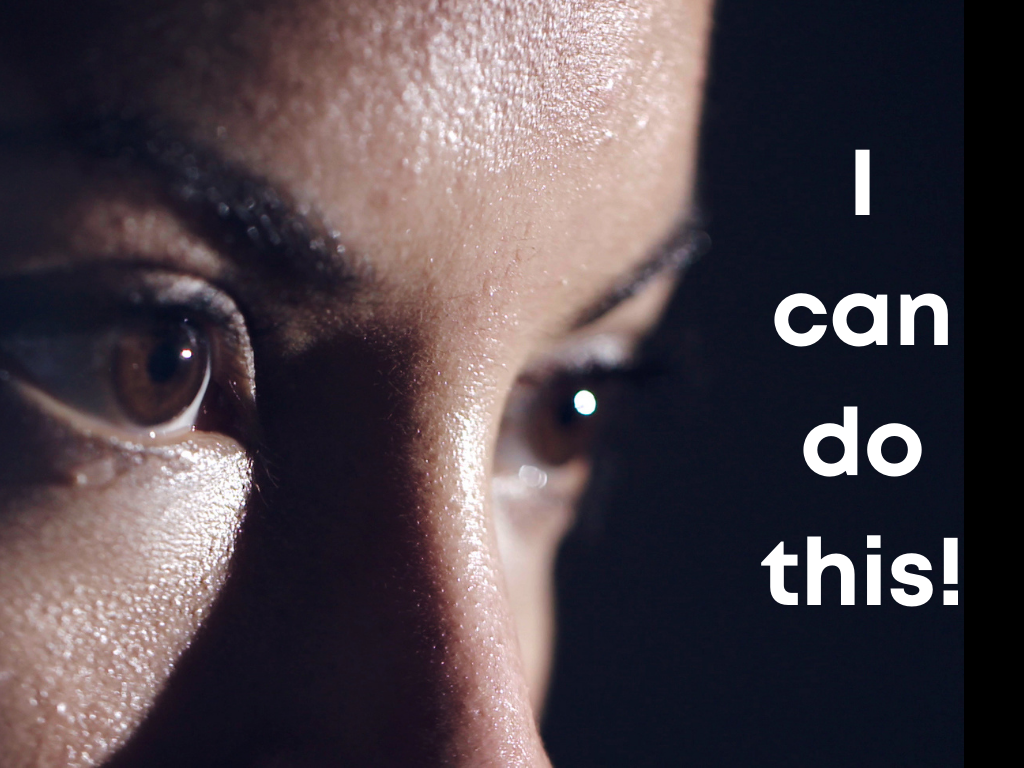
Failing the bar exam unleashes a tsunami of feels, none of them good.
It feels like all that hard work you did counted for nothing; like the career in law you dreamed of has been ripped from your hands; and like you’ve been left behind, while your peers embark upon their exciting journeys.
The top reasons people fail the bar exam is that they run out of time and don’t get the practice they need. And they run out of time because they use a cookie-cutter approach to studying; don’t prioritize the content correctly; use inefficient study techniques; and aim for perfection, rather than proficiency.
There are many pitfalls when it comes to scoring decent bar exam results. And now that you know them, you can apply them to your MBE prep so that you can lend your weight to the bar exam pass rate for your state!
For more excellent advice for law students and grads, check out:
